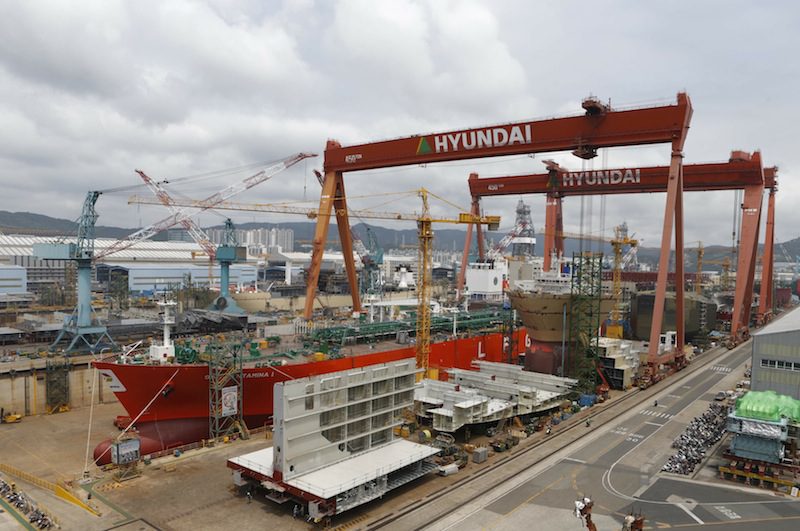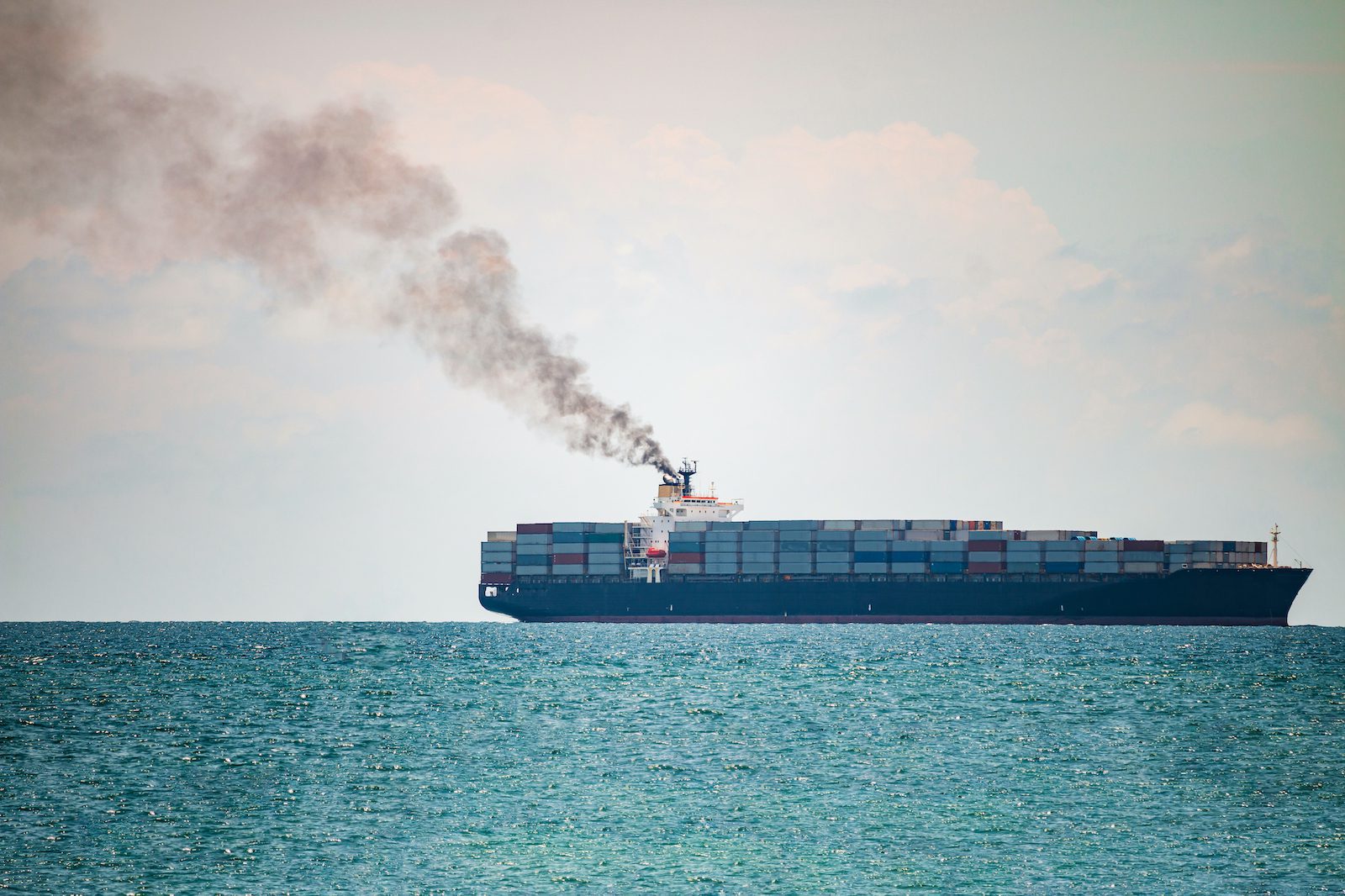Hyundai Heavy Industries shipyard in Ulsan, about 410 km (255 miles) southeast of Seoul. REUTERS/Lee Jae-Won
By David Fickling
(Bloomberg View) — Things had been looking more hopeful for Korea’s three largest shipbuilders, until today.
After seven consecutive quarters of losses, analysts reckoned that earnings before interest and tax at the world’s biggest shipyard — Hyundai Heavy — were going to turn positive in the three months to Sept. 30. Um, that didn’t happen. Samsung Heavy at least looks more promising, posting net income for the third quarter that beat estimates. Daewoo Shipbuilding is also forecast to be back in the black by the first quarter of next year, but then again, it’s been in talks with lenders and is worth barely half its book value after working capital drifted into negative territory.
So put that ceremonial ship launching champagne back on ice. Ebit shouldn’t have been a particularly challenging metric on which to break even. Until it drifts into comfortably positive territory, the trio will have to meet the bulk of their interest payments from sales of assets, new shares, or by taking on more debt.
Meantime, the macro outlook’s still gloomy. Sure, Korea’s shipbuilders moved nimbly over the past five years to colonize the offshore oil market after Chinese yards undercut them on much of their traditional business. But that’s left them heavily exposed to upstream petroleum at a time when an equity index of oil services companies has fallen about 40 percent over 12 months and the number of active drilling rigs is languishing at its lowest since 2009.
With oil prices still subdued, there’s unlikely to be a rush of fresh orders any time soon. Worse still, oil and gas producers are also tightening their belts, so many of the vessels already out there in the deep blue sea aren’t doing much in the way of exploring:
A resolution to Daewoo’s debt problems, or a breakthrough in Samsung Heavy’s thwarted attempts to merge with its Samsung Engineering affiliate, might still enable Korea’s shipyards to surprise on the upside. But for now you could draw a parallel with the oil tankers they build: Weighed down, and extremely slow to turn around.
This column does not necessarily reflect the opinion of the editorial board or Bloomberg LP and its owners.
©2015 Bloomberg View

 Join The Club
Join The Club











